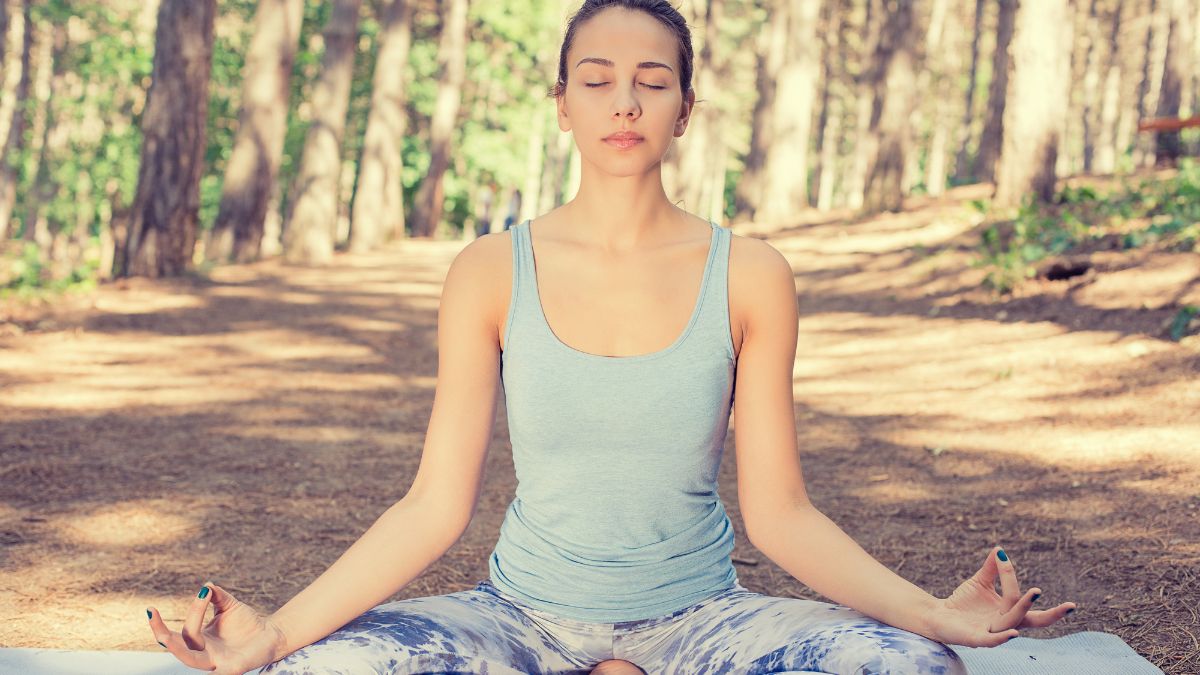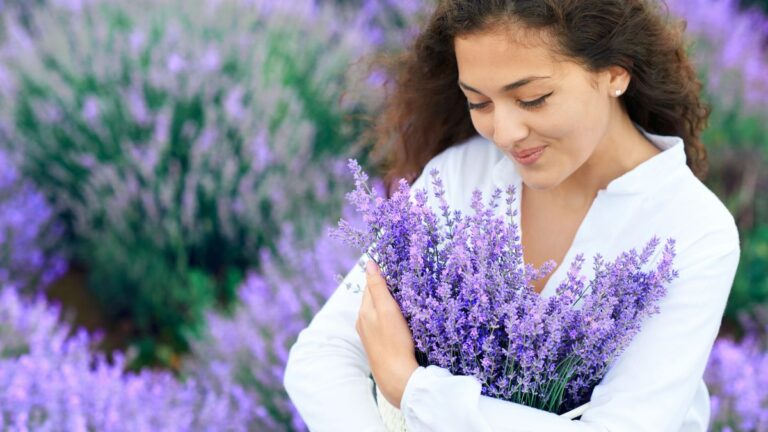15 Soothing Herbs to Enhance Relaxation and Deepen Meditation
Meditation and relaxation are essential practices for maintaining mental and emotional well-being. Whether you’re seeking to unwind after a long day or deepen your meditation practice, incorporating soothing herbs can be a powerful way to enhance these experiences.
These herbs have been used for centuries in various cultures for their calming properties. They help to ease stress, promote tranquility, and create a serene environment. Below are 15 soothing herbs to help you relax, unwind, and dive deeper into your meditation practice.
Lavender
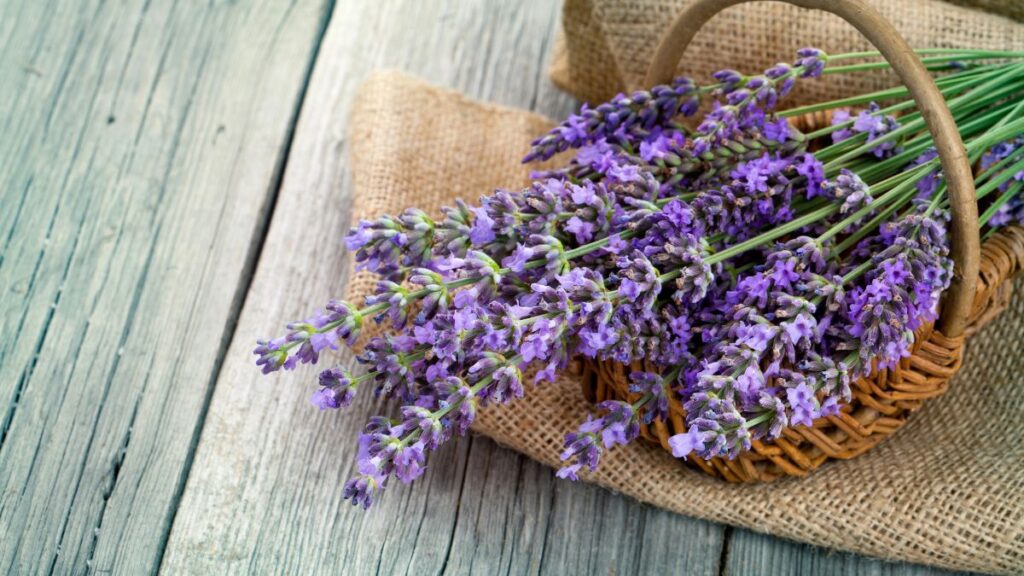
Lavender is one of the most well-known herbs for relaxation, and for good reason. Its soothing scent has been shown to reduce anxiety and promote a sense of calm, making it an excellent choice for meditation.
Lavender can be used in various forms, such as essential oils, dried flowers, or teas. Inhaling lavender essential oil or adding a few drops to your bath can help relax your mind and body, preparing you for a peaceful meditation session. You can also place a sachet of dried lavender under your pillow to improve sleep quality, which is essential for overall relaxation.
Chamomile
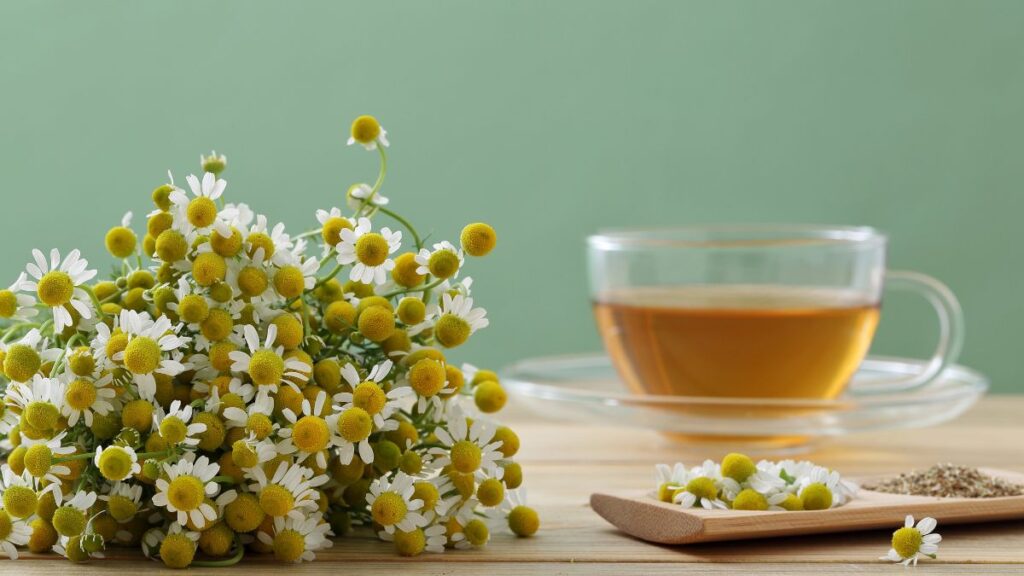
Chamomile is another herb celebrated for its calming effects. Often enjoyed as a tea, chamomile contains apigenin, an antioxidant that binds to certain receptors in your brain, promoting relaxation and reducing insomnia.
Drinking chamomile tea before meditation can help quiet your mind and prepare you for a more focused and deep practice. Its mild sedative properties make it a great choice for evening meditation or winding down before bed. Additionally, chamomile can soothe digestive issues, further contributing to a relaxed state.
Valerian Root
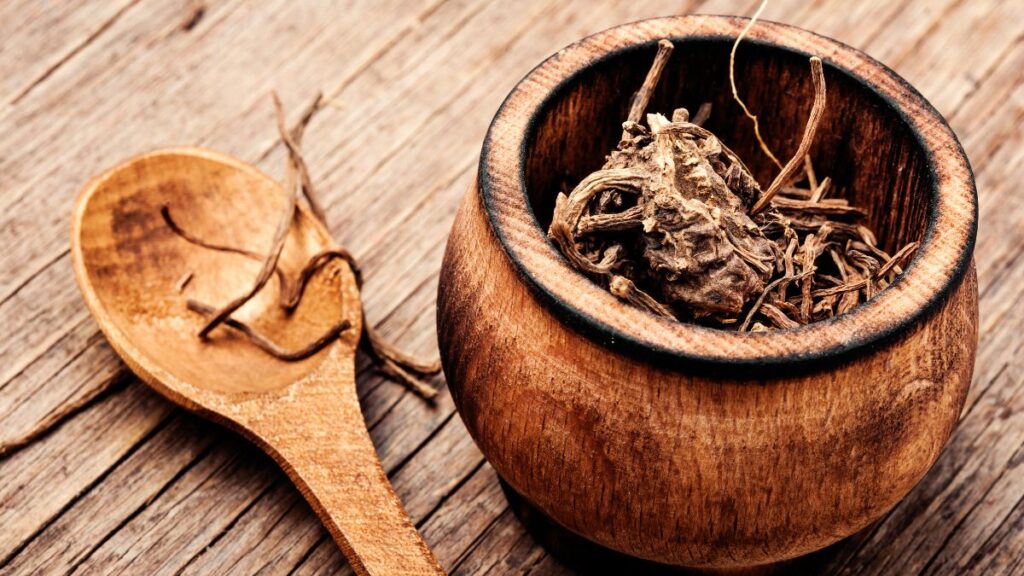
Valerian root has been used for centuries to treat insomnia and anxiety. This powerful herb is known for its ability to calm the nervous system and promote deep relaxation. It works by increasing the levels of GABA, a neurotransmitter that helps regulate nerve impulses in your brain, leading to a calming effect.
Taking valerian root as a supplement or drinking it as a tea before meditation can help you achieve a deeper state of relaxation. However, it’s important to note that valerian root can have a strong taste and smell, so it may be best enjoyed in capsule form.
Lemon Balm
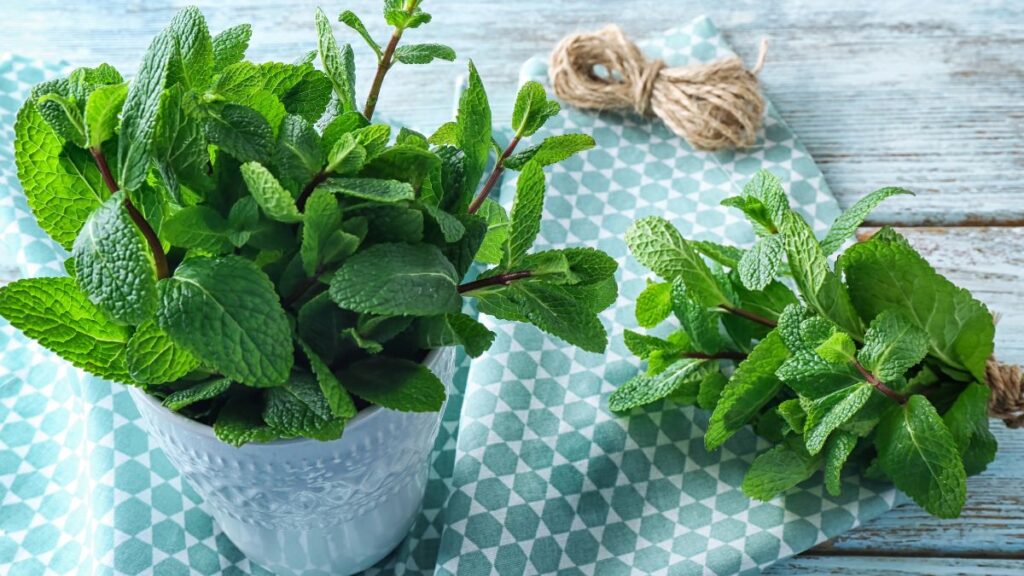
Lemon balm, a member of the mint family, is known for its mild sedative effects and ability to reduce stress. Its lemony scent is uplifting yet calming, making it a perfect herb for relaxation and meditation.
Drinking lemon balm tea can help alleviate tension and promote a sense of well-being, making it easier to focus during meditation. Additionally, lemon balm is often used to improve cognitive function, so it may also help enhance your mindfulness practice. It’s a gentle herb that can be used regularly without causing drowsiness, making it a versatile option for daily relaxation.
Holy Basil (Tulsi)
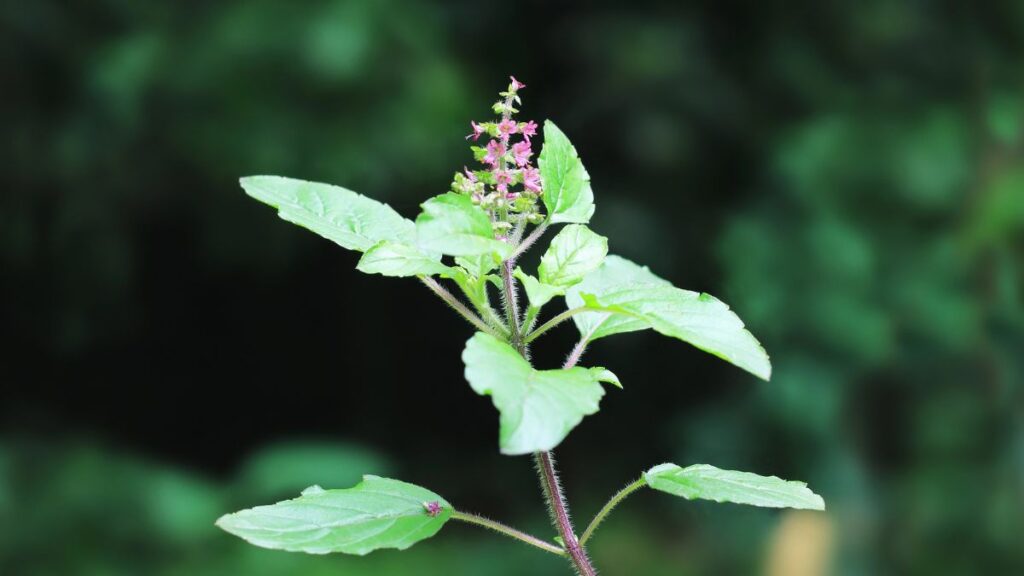
Holy basil, also known as tulsi, is revered in Ayurvedic medicine for its stress-relieving properties. It’s considered an adaptogen, meaning it helps your body adapt to stress and promotes balance. Drinking tulsi tea or taking it in supplement form can help calm your mind, making it easier to enter a meditative state.
Tulsi is also known to boost the immune system and improve respiratory health, enhancing your overall well-being. Its slightly spicy, aromatic flavor makes it a unique and enjoyable addition to your relaxation routine.
Passionflower
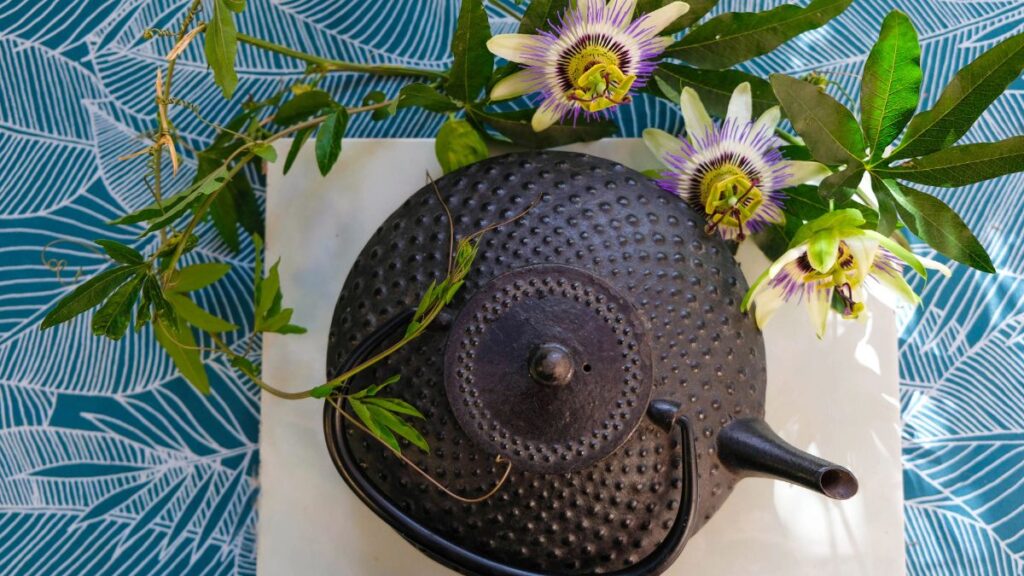
Passionflower is a beautiful herb traditionally used to treat anxiety and insomnia. Similar to valerian root, it works by increasing the levels of GABA in the brain, which helps to calm the mind and promote relaxation.
Passionflower tea is a popular way to enjoy its benefits, particularly in the evening when you’re preparing for meditation or sleep.
Its gentle, calming effects can help you relieve the day’s stresses and focus more fully on your meditation practice. Additionally, passionflower is known to have anti-inflammatory properties, which can support overall health.
Ashwagandha
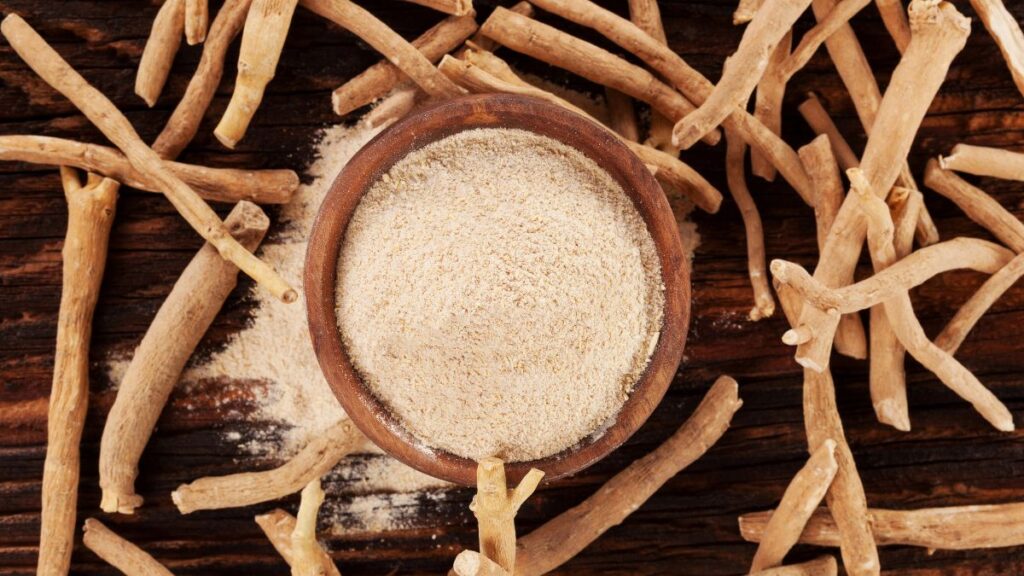
Ashwagandha is another powerful adaptogen that has been used in Ayurvedic medicine for thousands of years. It’s known for reducing stress, anxiety, and fatigue, making it an excellent herb for relaxation and meditation.
Ashwagandha helps regulate cortisol, the body’s stress hormone, to help you feel more balanced and centered. Taking ashwagandha as a supplement or in a tea can enhance meditation by promoting a calm and focused mind. Additionally, ashwagandha is believed to improve energy levels and stamina, which can be beneficial for longer meditation sessions.
Peppermint
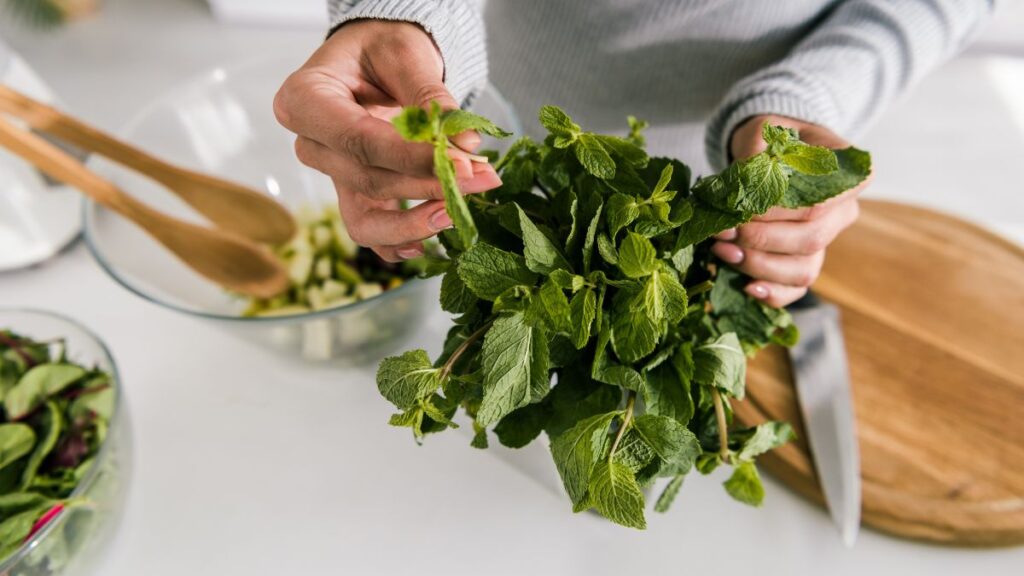
Peppermint is often associated with its invigorating and refreshing scent, but it also has calming properties that can be beneficial for relaxation. The menthol in peppermint can help soothe tension and headaches, making it easier to relax and focus during meditation.
Drinking peppermint tea or inhaling its essential oil can help clear your mind and create a peaceful atmosphere for meditation. Peppermint is known to support digestion, which can help you feel more comfortable and relaxed during your practice. Its cooling effect can also be refreshing during warmer months.
Sage
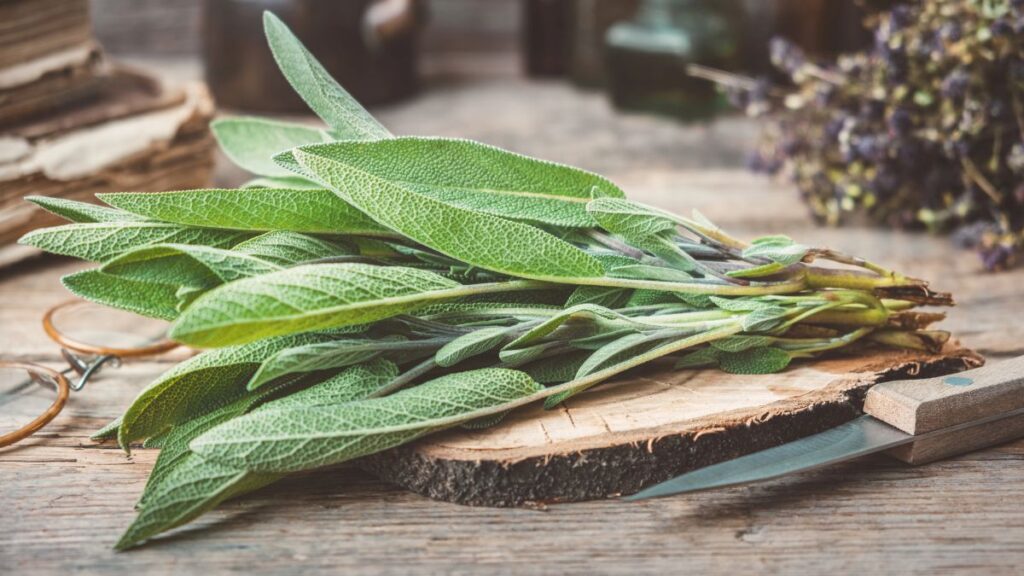
Sage has been used in spiritual practices for centuries, often burned as a smudge to cleanse spaces and promote a sense of peace. The earthy, aromatic scent of sage can help clear negative energy and create a calm environment for meditation.
Sage is also known for enhancing mental clarity and focus, making entering a deep meditative state easier. Drinking sage tea or using sage essential oil can help calm your nerves and support your relaxation routine. Sage has antimicrobial properties, which can help purify the air and support overall wellness.
Rosemary
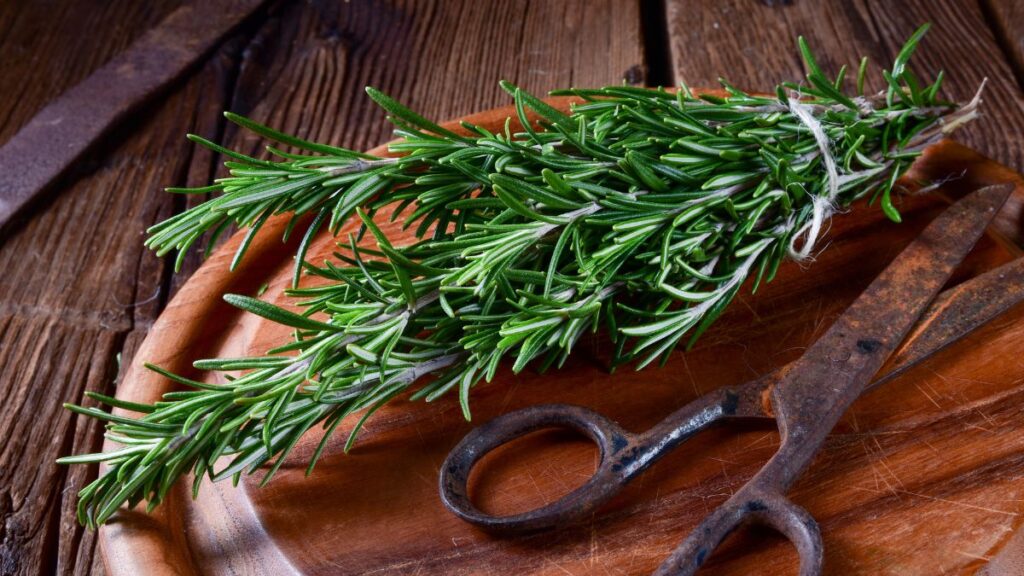
Rosemary is a stimulating herb that can also promote relaxation by helping to clear the mind and enhance concentration. Its woody, aromatic scent improves cognitive function and memory, which can support a more focused meditation practice.
While rosemary is often used in cooking, it can also be enjoyed as a tea or in essential oil form to help you unwind and prepare for meditation. Inhaling rosemary essential oil before or during meditation can help you stay present and connected to your breath. Rosemary also has anti-inflammatory and antioxidant properties, supporting overall health.
Linden Flower
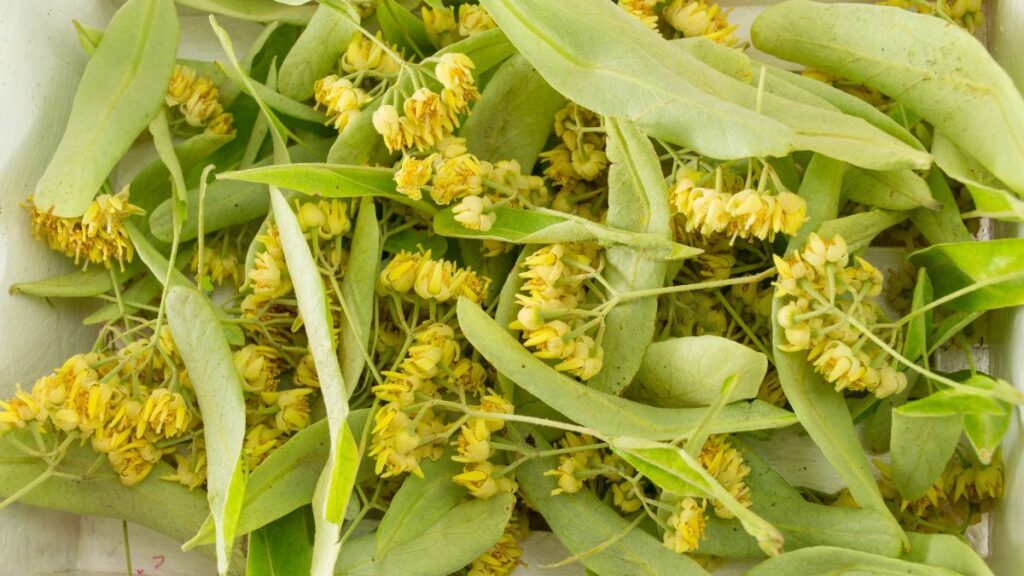
Linden flower, also known as lime blossom, is a gentle herb that has been used for centuries to promote relaxation and reduce anxiety. Its sweet, floral scent is calming and soothing, making it an excellent choice for creating a peaceful environment for meditation.
Linden flower tea is a popular way to enjoy its benefits, particularly in the evening when you’re winding down for the day. The relaxing effects of linden flower can help ease tension in the body and calm the mind, allowing you to enter a deeper state of meditation. Additionally, linden flower is known to support cardiovascular health, which can enhance overall well-being.
St. John’s Wort

St. John’s Wort is well-known for its ability to improve mood and reduce symptoms of depression and anxiety. This herb has been used for centuries to support mental health and emotional well-being. Drinking St. John’s Wort tea or taking it as a supplement can help create a more positive and relaxed mindset, making it easier to focus during meditation.
While it’s important to consult with a healthcare provider before using St. John’s Wort, particularly if you’re on medication, its mood-lifting properties can be a valuable addition to your relaxation and meditation routine. It’s also believed to support nerve health, contributing to overall relaxation.
Catnip
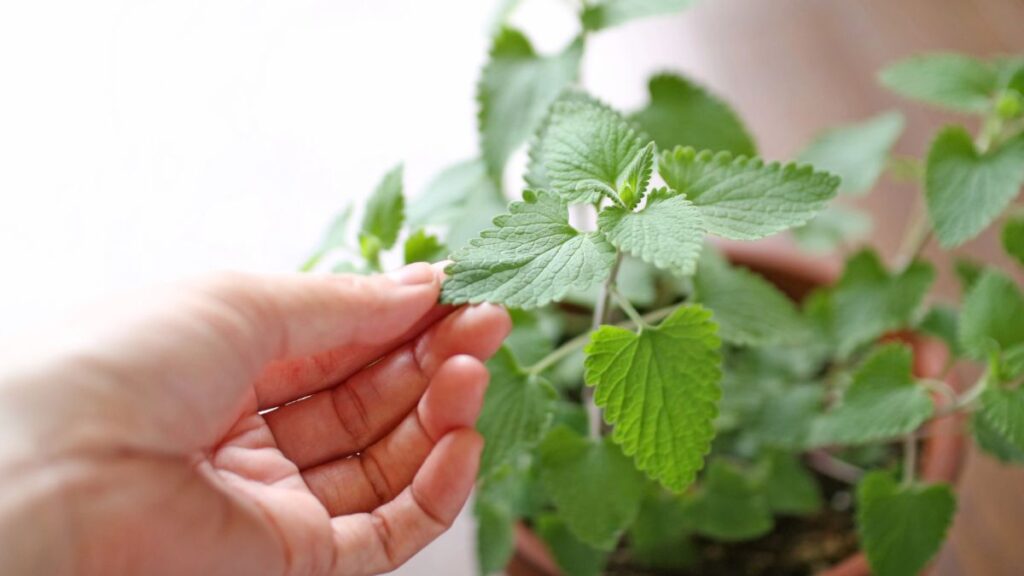
Catnip is often associated with its effects on cats, but it also has calming effects on humans. This herb is a member of the mint family and is known for its mild sedative properties. Drinking catnip tea can help ease anxiety and promote relaxation, making it a great choice for evening meditation or winding down before bed.
Catnip is also believed to support digestive health, which can further enhance your overall sense of well-being. Its gentle effects make it suitable for regular use, helping you maintain a calm and balanced state of mind.
Gotu Kola
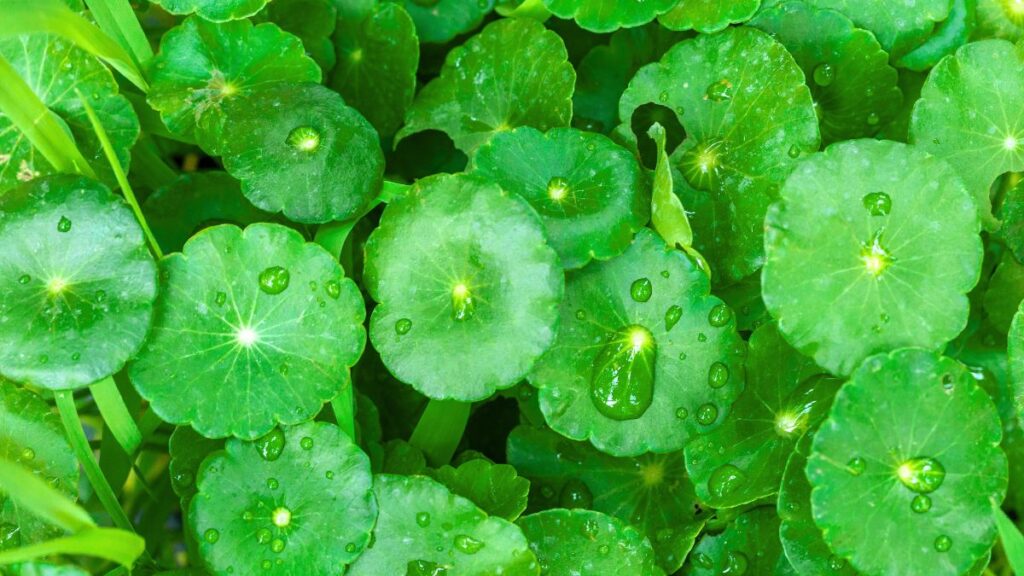
Gotu Kola is a revered herb in traditional medicine, known for its ability to enhance mental clarity and reduce anxiety. It’s often used to support meditation practices because it can calm the mind and promote focus. Drinking Gotu Kola tea or taking it as a supplement can help you achieve a deeper, more mindful meditation experience.
This herb is also believed to support circulation and brain health, which can contribute to a more relaxed and centered state. Additionally, Gotu Kola is known to have adaptogenic properties, helping your body manage stress more effectively.
Hops
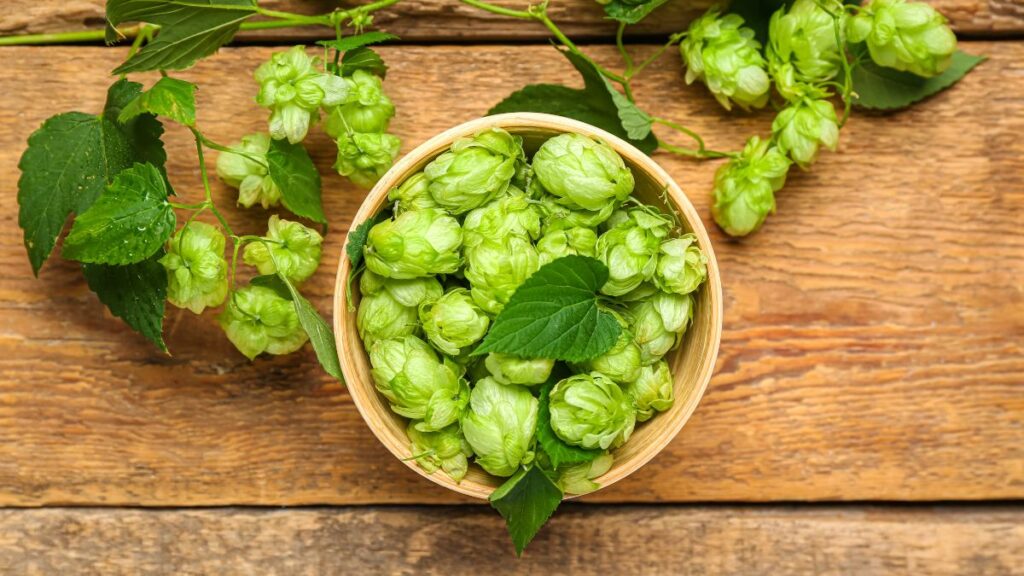
Hops, commonly used in brewing beer, also have potent relaxing properties. The flowers of the hop plant are rich in compounds that promote sleep and reduce anxiety. Drinking hop tea or using hops in a pillow sachet can help you relax and prepare for meditation.
Hops are particularly effective for those who struggle with insomnia or have trouble unwinding after a long day. Their calming effects can help you achieve a more restful state, both mentally and physically, enhancing your overall meditation practice. Hops are also known to have anti-inflammatory properties, supporting overall health.
15 Foods Only The Wealthy and Elite Can Eat Now

Culinary trends are constantly evolving, and some foods have become more than just sustenance—they’ve become status symbols reserved for the elite.
15 Foods Only The Wealthy and Elite Can Eat Now
15 Practical Ways to Save Money During Retirement

Entering retirement doesn’t have to mean giving up a comfortable lifestyle. With strategic planning and simple adjustments, it’s possible to make the most of your retirement income and enjoy a financially secure life.

